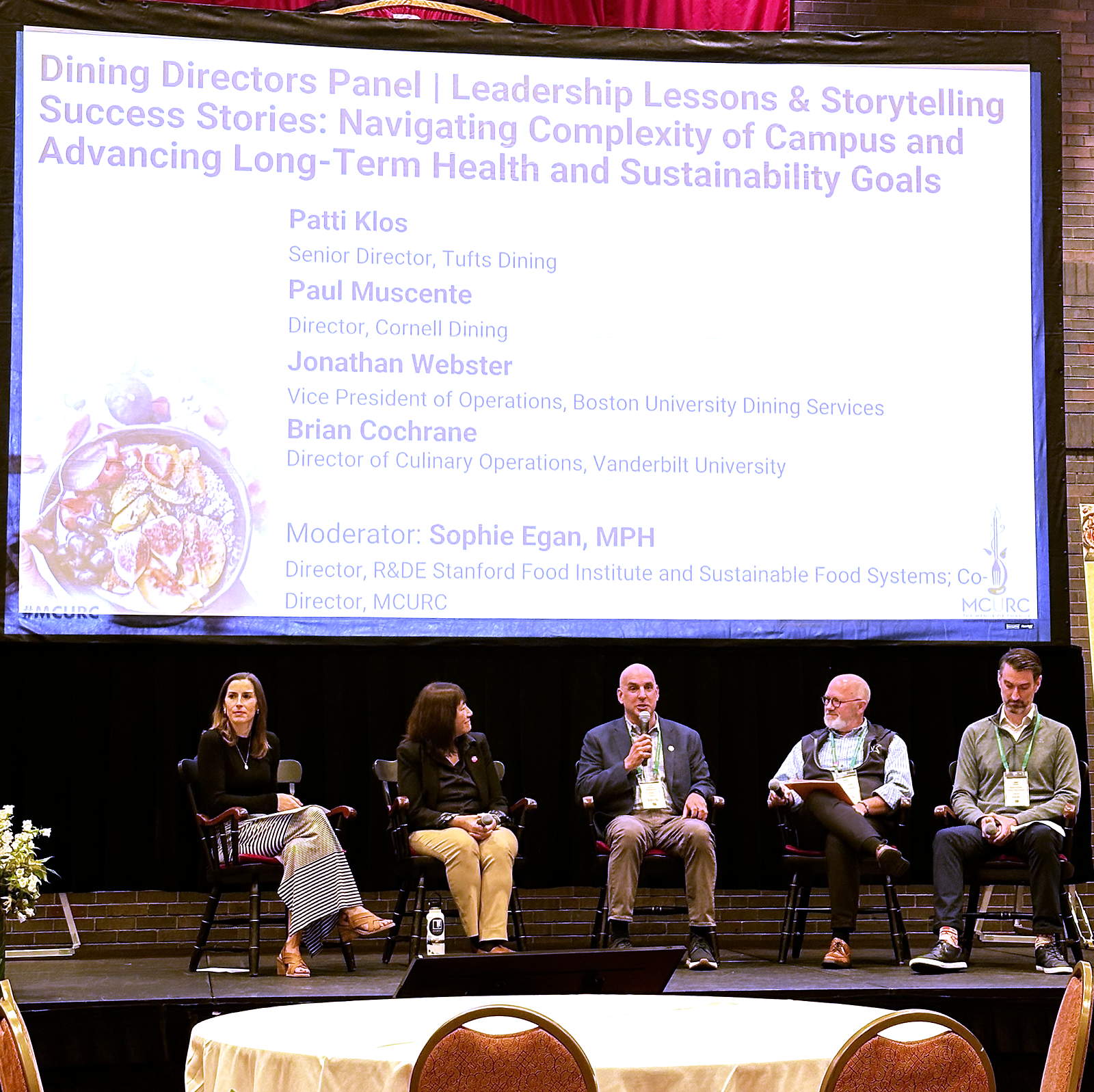Cornell Dining's director talks about embracing the long view, partnerships with students, and storytelling at Menus of Change panel
Paul Muscente, the director of Cornell Dining, was invited to participate in a panel discussion of higher education dining services directors at this week's annual all-member meeting of the Menus of Change University Research Collaborative (MCURC), a global network of colleges and universities using campus eateries as living laboratories to advance principles of healthy, sustainable eating.
At the "Leadership Lessons & Storytelling Success Stories" panel, alongside dining directors from Vanderbilt, Tufts, and Boston University, Paul focused on the significance of taking a long-term perspective when it comes to advancing health and sustainability goals on campus.
Embracing the long view "involves making decisions and implementing strategies that will have a positive impact not just in the present, but for years to come," Paul told the audience of food-service leaders. He illustrated this idea by sharing what we learned when building our nutrition and wellness principles, Eating Well with Cornell Dining.
He recounted how Cornell Dining relies on students to help shape and provide instrumental feedback on how our core nutrition and wellness programs would best resonate with them, and how effective storytelling and communication play a pivotal role in driving high participation. He highlighted how compelling narratives and strategic marketing have been instrumental in garnering support and buy-in for a variety of sustainability initiatives, ultimately leading to their successful implementation.
Paul also highlighted the new Discovery Kitchen, Cornell Dining's transformative culinary learning space in partnership with the College of Human Ecology through the Division of Nutritional Sciences, and how we've been using that space to connect with students, faculty, and staff by hosting "Get Cooking" classes to teach our guests how to prepare satisfying plant-based dishes. Students leave these sessions not just with a momentarily satiated appetite, but with an appreciation for how easily they can cook their own sustainable and enjoyable meals.
In offering a leadership lesson to the group, Muscente urged them to persevere in pursuing campus climate goals, Menus of Change Principles, and meeting students where they are in their journey, especially during challenging times and the increasing complexity our audiences face. He stressed the importance of fostering resilience, adaptability, and a collaborative spirit in navigating the complexities of campus operations, as we advance our goal of contributing to the well-being of students and the planet.
About Cornell Dining
Cornell Dining is consistently ranked in the Princeton Review's top ten for best campus food among all colleges and universities in the country! That high rating comes from customer surveys, and reflects Cornell Dining's commitment to serving high-quality foods that are healthy and creatively prepared with genuine care for a diverse community. Cornell Dining operates over 30 on-campus eateries -- which include residential dining rooms, cafés, coffeehouses, food courts, and convenience stores -- and serves more than 23,000 meals a day to members of the Cornell community. For more information, visit dining.cornell.edu.

